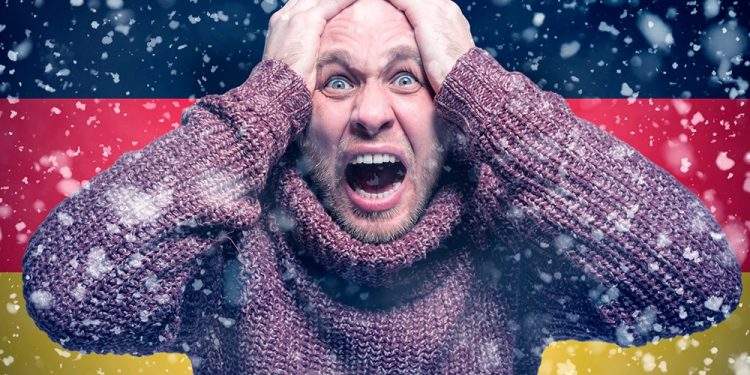German officials have issued a dire warning about a possible shortage of natural gas during the winter, when demand for heating is at its highest. This has driven up sales of electric heaters as German citizens prepare their households for the coming cold.
Germany has been scrambling with rising energy costs for months, which it has blamed on Russia throttling the influx of gas supplies coming into Europe. Moscow, in turn, has blamed energy prices on Western sanctions. (Related: Energy prices in Germany soar 1,000% as companies go bankrupt.)
According to German market research company Growth From Knowledge (GFK), over 958,000 heaters have been sold in the country since the beginning of 2022. The volume of electric heater sales from January to August has jumped by 76 percent compared to the same period a year earlier.
GFK noted that the overall volume of electric heater sales for the five largest economies in Europe – Germany, the United Kingdom, France, Spain and Italy, respectively – actually decreased by 5.1 percent, strongly suggesting that the consumer habits of Germans are bucking the trend.
“Value growth from January to August 2022 was only driven by massive growth in Germany. All other markets show a negative result in value and volume for January to August 2022 compared with the same period of the previous year,” said GFK in a statement.
Too many electric heaters could overburden Germany’s power grid
The German Federal Association of Energy and Water Management (BDEW) warned that a potential consequence of too many households relying on electric heaters is that it raises the possibility of blackouts due to too much strain on the power grid.
“Heaters can overload the power grids, for example, when many households in a district turn on their heaters at the same time on a cold winter evening,” warned BDEW.
The association noted that households will still have access to heating in the event of a gas shortage. Households, like hospitals, police stations and fire brigade facilities, have priority during gas shortages according to the law.
“We are in a very tense situation, but scaremongering is not going to help us here. Private households are among the protected customers,” said BDEW.
A spokesperson from Stadtwerke Bonn, a public energy and transport utility company, emphasized in a statement that private households and critical infrastructure “would be the last to be affected” by restrictions implemented during gas shortages.
The spokesperson added that people should buy electric blankets instead of purchasing energy-intensive electric heaters. Electric blankets require only a fraction of the power while still providing warmth.
Government trying to get households, businesses to reduce energy consumption
In a radio interview, German Vice Chancellor and Minister of Economic Affairs Robert Habeck noted that the country is in an “extremely tense situation” right now due to the energy crisis.
“If we don’t save, if households don’t reduce consumption, we still risk not having enough gas in the winter,” he said.
The Federal Network Agency, the government agency responsible for gas rationing in case of a shortage, earlier said in a statement that household consumption remains too high to be sustainable.
The agency’s president, Klaus Mueller, called for “sustained austerity efforts,” warning both households and businesses that gas consumption in the past few weeks was “well above” consumption levels in prior years, calling the figures “sobering.”
“Without significant cutbacks in the private sector, it will be difficult to avoid a gas shortage in winter,” he said. He added that curtailing consumption would still be needed even if winter wasn’t coming. He also warned that even if households and businesses decrease consumption, there’s no guarantee of a “sure-fire” way of preventing gas shortages.
Mueller said these three conditions must be met for the country to get through the winter: Germany must import more natural gas; the gas supplies of Germany’s neighbors must remain stable; and each individual must drastically cut back on gas consumption.
Learn more about the energy crisis gripping Europe at NewEnergyReport.com.
Watch this clip from Next News Network as Aldo Buttazzoni discusses the coming German power grid collapse – and who is to blame for it.
This video is from the channel News Clips on Brighteon.com.
More related stories:
- Thousands of German protesters declare: “Without Russian gas, our economy will be dead!”
- Germany to nationalize struggling energy firm Uniper amid worsening financial crisis.
- Bakery owners in Germany protest sky-high energy bills amid worsening energy crisis in Europe.
- Energy collapse: First blackout simulation in German district predicts 400 deaths in 96 hours.
- Germans sound alarm as skyrocketing energy bills overwhelm their monthly budgets.
Sources include:
It’s becoming increasingly clear that fiat currencies across the globe, including the U.S. Dollar, are under attack. Paper money is losing its value, translating into insane inflation and less value in our life’s savings.
Genesis Gold Group believes physical precious metals are an amazing option for those seeking to move their wealth or retirement to higher ground. Whether Central Bank Digital Currencies replace current fiat currencies or not, precious metals are poised to retain or even increase in value. This is why central banks and mega-asset managers like BlackRock are moving much of their holdings to precious metals.
As a Christian company, Genesis Gold Group has maintained a perfect 5 out of 5 rating with the Better Business Bureau. Their faith-driven values allow them to help Americans protect their life’s savings without the gimmicks used by most precious metals companies. Reach out to them today to see how they can streamline the rollover or transfer of your current and previous retirement accounts.






And how are they going to run their electric heaters when Germany will have to ration electricity due to lack of fuel to generate it?
Might want to think about getting a wood stove, or moving to Spain.